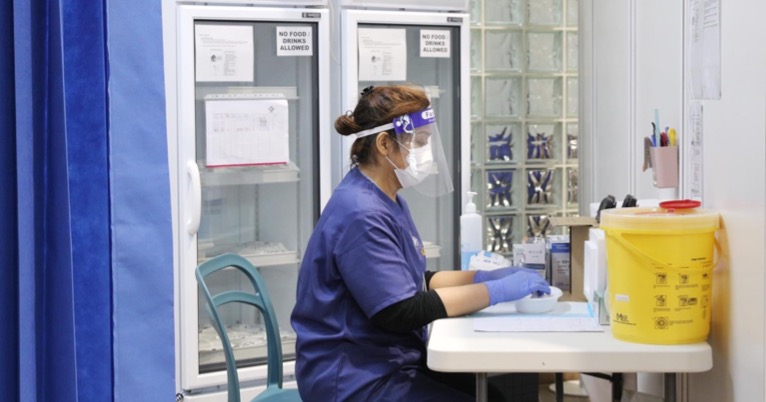The Expert Committee on Covid-19 Vaccination has announced the removal of restrictions on people with a history of anaphylaxis (a severe, potentially life-threatening allergic reaction) for mRNA-vaccines.
This includes vaccines like Pfizer-BioNTech and Moderna.
In a press release on June 4, MOH said, "Our primary consideration is to protect all Singaporeans, by ensuring that our population has access to vaccines that meet strict standards of safety, quality and effectiveness."
Due to severe allergies, there are about 32,000 Singaporeans who currently can't take mRNA-based vaccines.
The Committee has been reviewing local and international safety data on vaccinating people with a history of anaphylaxis due to food and other medicines, with a view to allowing this group to receive the mRNA vaccines safely.
MOH said:
"After careful study of the data both globally and locally, the (Committee) has recommended that persons with a history of anaphylaxis or allergic reactions to other drugs, food, insect stings, or unknown trigger (idiopathic) can be vaccinated with the mRNA vaccines.
Persons with a history of anaphylaxis or allergic reactions to other vaccines can be referred to an allergist for further evaluation fully subsidised by the government and may be vaccinated, if deemed suitable. MOH accepts the (Committee's) recommendation and will remove this restriction from June 5, 2021."
With this, a large majority of the 32,000 will be able to get vaccinated with the mRNA-based vaccines, although a few will still not be eligible if they have a history of anaphylaxis or allergic reactions to other vaccines.
Protection for group who developed anaphylaxis or allergic reactions due to first mRNA-based Covid-19 vaccine dose
MOH noted that a small group of 2,000 developed anaphylaxis or allergic reactions (hives, face/ eyelid/ lip/ throat swelling, generalised rash within seven days after vaccination) due to the first dose of an mRNA-based Covid-19 vaccine.
MOH said this group should not receive an mRNA-based vaccine again.
However, steps are being taken to protect them against Covid-19. MOH said it is evaluating and will bring in non-mRNA-based vaccines that are more suitable. It added:
"We expect to do this before the end of this year after the vaccines are approved by the Health Sciences Authority (HSA) for use in our national vaccination programme. We will provide more details later when these vaccines are available."
Such individuals may also wish to apply for a vaccine under the Special Access Route.
Under the Route, Covid-19 vaccines approved by the World Health Organization (WHO) and included in its Emergency Use List, such as Sinovac, can be imported and supplied by private healthcare providers as unregistered vaccines, to be administered to individuals in Singapore.
MOH added:
"The vaccines from our current stock will be released for free to successful providers. Providers will be allowed to charge patients receiving the vaccine a fee to cover their costs.
For the 34,000 individuals who were previously rejected from taking the mRNA vaccines or who were allergic to the mRNA vaccine, the government will reimburse them this fee if they decide to receive Sinovac-CoronaVac. Details will be made known to these individuals in the coming week."
Related story:
Top image from MOH's Facebook page.
If you like what you read, follow us on Facebook, Instagram, Twitter and Telegram to get the latest updates.
